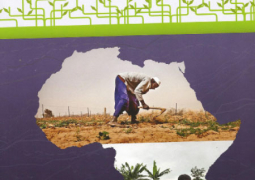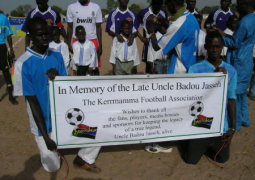(Thursday 22nd October 2009 Issue)
Recently, the alumni association Gambia chapter of the International Islamic University Malaysia (IIUM) was formed. Gathered at the occasion was a roll call of who is who in The Gambia. They included Mam Cherno Jallow, the chief executive officer of the Gambia Chamber of Commerce and Industry (GCCI); the Governor of the Central Bank of The Gambia Mr Bamba Saho; Pa Alieu Sillah, commissioner of insurance at the Central Bank; Lamin S. Camara, a human rights lawyer.
Other alumni of the IIUM include the Minister of Justice and Attorney General Mrs Marie Saine-Firdaus; Ousman Jammeh, former Master of the High Court now at the International Criminal Court of Rwanda at Arusha; Dr Buhari Sillah, former head of department of Management sciences at the University of The Gambia; Dr Omar Jah, senior academic at the University of The Gambia; Dr Abubakar Senghore, head of the department of social sciences at the University of The Gambia. Obviously, alumni of the IIUM are highly placed in society. Not only that, they are all high achievers in their various disciplines, easily noticed due to their prodigious accomplishments in society.
A university, any institution of learning for that matter, is not defined by its architectural elegance but by the quality of its products. Oxford, Cambridge, Sorbonne, Yale, Columbia, Harvard are top universities mostly because of the contributions of their alumni to humanity. Harvard for instance has produced Obama, Al Gore, Michelle Obama, John F. Kennedy. Yale also parades worthy alumni like Bill Clinton, Hillary Clinton, George W. Bush etc. The quality of the products of a university is a reflection of the quality of its teaching, research and community service. A university staffed by third-rate professors would almost invariably churn out third-rate products.
It is for this reason that African governments have to invest heavily in education at all levels. Education is the foundation of modern society; without it no society can make significant advances in all spheres of life. A time was when Fourah Bay University in Freetown, Sierra Leone, was regarded as the cradle of learning in West Africa. To illustrate its decline, a writer recently described it thus: From Athen to Ashes. That speaks volume for the state of the university that was once the hub of learning in the sub region.
Unlike most Third World countries, especially those in Africa, Malaysia has been able to curb its rot and put its house in order. Now Malaysian universities are just as good, if not better than most Western university. The erudition, prowess and depth of the IIUM alumni in The Gambia are proofs positive that the Malaysians are not joking, or sleeping. By contrast, they are wide awake to the challenges and demands of the changing world. That is why its government is pumping superabundance of resources into its institutions of learning. Clearly, the West is fast losing its allure as the fountain of knowledge; at least for Gambians who have tasted what it is like to study in Malaysia, the difference is clear.
A university that has a galaxy of superstars like: Bamba Saho, Marie Saine-Firdaus, Lamin S. Camara, a trial attorney of uncommon ability; and Mam Cherno Jallow is a university to reckon with. These men and women are among the movers and shakers of society. It seems that the IIUM instills in its alumni some indefinable quality that makes them outstanding in whatever they do. Our educational planners and policymakers would therefore be wise to look to Malaysia for inspiration.
To live for a time close to great minds is the best kind of education?.
John Buchan




